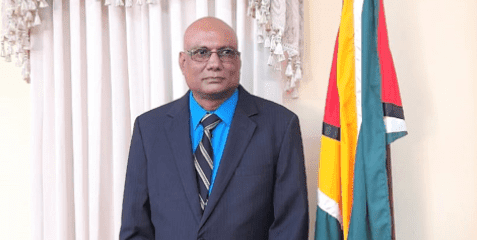As Guyana gears up for its national elections in 2025, the Guyana Elections Commission (GECOM) addressed concerns about electoral integrity on Wednesday by detailing the measures in place to prevent multiple voting and other forms of fraud.
The response comes after recent criticisms from the Alliance For Change (AFC) regarding the electoral system. The AFC called for the introduction of biometric and electronic voting to enhance electoral integrity and urged GECOM to remove outdated names from the National Register of Registrants Database (NRRDB), from which all voters’ lists are derived.
GECOM reiterated that it operates within the confines of existing statutory provisions governing National Registration, Local Government Elections, and General and Regional Elections. “We cannot and will not act outside of the extant statutory provisions,” GECOM stated, emphasizing its inability to implement changes beyond what current laws permit.
The Commission highlighted multiple safeguards designed to protect the integrity of the electoral system, including:
- The presence of political party agents at each polling station.
- Accurate voter identification.
- The use of indelible ink.
- Security personnel from the Guyana Police Force at polling stations.
- An intensive voter education campaign.
- Adequate training of Election Day staff for efficient conduct of polls.
- Counting of ballots at polling stations in the presence of authorized representatives of the contesting parties.
- The presence of local and international observers throughout the voting and counting processes.
In response to concerns about voter impersonation, GECOM’s Chief Election Officer Vishnu Persaud has proposed installing cameras in polling stations to record activities without compromising voter privacy. Regarding the AFC’s proposal for biometric verification, GECOM noted that current laws do not permit the use of biometric technology. Chairman Justice (Ret’d) Claudette Singh has previously stated that implementing such systems would require legislative changes.
However, GECOM has explored the feasibility of introducing digital fingerprint capture and biometric identification. “The Chairman facilitated discussions on a Motion that was moved by one Member of the Commission proposing the introduction of digital fingerprint capture during registration, and the introduction of biometric fingerprint identification of voters at polling stations,” GECOM stated. A feasibility study has been conducted, and copies of the study have been circulated to Commission members for review and further deliberation.
Addressing the AFC’s concerns about the accuracy of the voters’ list, GECOM referred to a ruling by Acting Chief Justice Roxanne George. The ruling restricts GECOM from updating the NRRDB beyond the existing legal provisions, requiring adherence to legal procedures for any list updates. Despite these constraints, GECOM continues to update the National Register based on reports of deceased individuals from the General Register Office. The Commission also conducts regular Claims and Objections Exercises to maintain the accuracy of the voters’ list. Additionally, the Chief Election Officer has requested periodic updates from the Chief Medical Officer and the Commissioner of Police regarding deceased persons to further ensure the register remains current and accurate.













